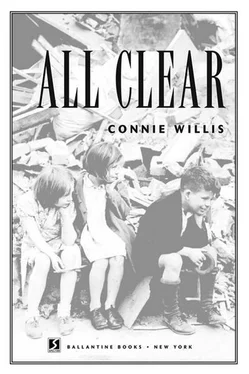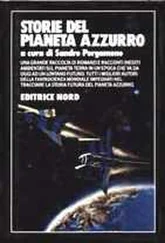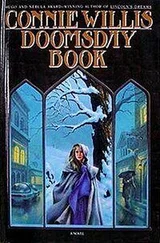Connie Willis - All Clear
Здесь есть возможность читать онлайн «Connie Willis - All Clear» весь текст электронной книги совершенно бесплатно (целиком полную версию без сокращений). В некоторых случаях можно слушать аудио, скачать через торрент в формате fb2 и присутствует краткое содержание. Жанр: Старинная литература, на английском языке. Описание произведения, (предисловие) а так же отзывы посетителей доступны на портале библиотеки ЛибКат.
- Название:All Clear
- Автор:
- Жанр:
- Год:неизвестен
- ISBN:нет данных
- Рейтинг книги:5 / 5. Голосов: 1
-
Избранное:Добавить в избранное
- Отзывы:
-
Ваша оценка:
- 100
- 1
- 2
- 3
- 4
- 5
All Clear: краткое содержание, описание и аннотация
Предлагаем к чтению аннотацию, описание, краткое содержание или предисловие (зависит от того, что написал сам автор книги «All Clear»). Если вы не нашли необходимую информацию о книге — напишите в комментариях, мы постараемся отыскать её.
All Clear — читать онлайн бесплатно полную книгу (весь текст) целиком
Ниже представлен текст книги, разбитый по страницам. Система сохранения места последней прочитанной страницы, позволяет с удобством читать онлайн бесплатно книгу «All Clear», без необходимости каждый раз заново искать на чём Вы остановились. Поставьте закладку, и сможете в любой момент перейти на страницу, на которой закончили чтение.
Интервал:
Закладка:
She darted across the street and climbed over the heap of wood and plaster that had been the front of the theater and into the lobby. Scarcely any damage had been done to it. The bomb must have been only a hundred-pounder, in spite of its loudness. She tried to open the double doors to the theater proper, but they were locked.
The mezzanine doors weren’t. She slipped through them.
Into chaos. The balcony and boxes had collapsed onto the rows of red-plush seats below, and the seats themselves were piled atop one another as though tossed there by a wave. The walls still stood, and there was still a ceiling except for a large, jagged hole on one side. Through it, the fiery sky lit this part of the theater with a pinkish-orange light. The front part of the theater and the stage lay in shadow.
“Sir Godfrey! Are you in here?” Polly called, and started carefully across the sea of openwork metal supports, cushions spilling out stuffing, and splintered mahogany from the balcony. Some of the rows of seats were still intact and upright, with discarded playbills still on their red-plush seats. But they were unstable, threatening to topple as Polly walked across them, grabbing for seat backs as she worked her way forward, and her shoes made it worse.
I have no business trying to do this in high-heeled shoes, she thought, stepping carefully over a curved panel which had been part of one of the theater boxes.
Sir Godfrey had said he’d be backstage looking at sets. She looked out across the jumble of upended seats, seeking something that would tell her when she’d reached the stage—a footlight or a curtain or a fallen catwalk—but there was nothing beyond the rows of tangled seats except what looked like a huge blanket, as if the rescue squad had covered the site with a tarpaulin to hide the wreckage.
As if it were a dead body, Polly thought, and realized what the tarpaulin was. The asbestos safety curtain. It had collapsed backward, draping the entire stage. At least it can’t catch fire, she thought, but if Sir Godfrey was under it, there was no way she’d be able to lift it off him. The one at the Alhambra weighed a ton.
She started toward the shrouded stage, calling, “Sir Godfrey! Where are you?” and stepping gingerly from seat to seat as if across stepping-stones. She remembered the governess at the pantomime telling her charges, “No, no, you mustn’t stand on the seats. You’ll tear the cloth,” and even as she thought it, her gilt heel went through the plush upholstery, her ankle twisted, and she fell sideways.
She grabbed for the back of the chair, which threatened to go over, steadied herself, and attempted to free her foot. The shoe’s heel was caught on something. One of the springs. She jerked her foot sharply upward, but it wouldn’t budge.
“Blast these heels,” she said, and tried to tear the upholstery further so she could see what she was caught on, but it was much stronger than it looked. She would have to take off the shoe. She tried to slide her foot out of it. No good. She bent awkwardly over to unstrap it. The stiff buckle wouldn’t budge either, and she bent over farther, struggling with it.
And heard a faint sound from the direction of the balcony. “Sir Godfrey?” she called, and thought she heard an answering groan. “I’m coming!” she said. “My shoe
—” She yanked viciously up on the end of the gilt strap. It came away in her hand, and she pulled her foot out of the shoe and reached back into the seat’s stuffing for it, wrenching the shoe from side to side to free it. It wouldn’t come.
“Wait, I’m coming!” she called, abandoning the shoe, and scrambled back toward where the sound had come from. “Sir Godfrey?”
“Here,” a man’s voice answered so faintly she couldn’t tell if it was Sir Godfrey’s.
“Are you injured?” she called, moving in its direction. “Keep talking so I can find you!”
“ ‘Here I lie and thus I bear my point. Four rogues in buckram let drive at me,’ ” he said, and it was most certainly Sir Godfrey. Who else would quote Shakespeare at a time like this?
He was only four rows back, under a tumble of seats. She could see his arm in the space between them. “Sir Godfrey,” she said, squatting down, but it was too dark under there to see him. “Is that you?”
“Yes. As you can see, my attempt to avert disaster was unsuccessful.”
“What are you doing out here in the theater? I thought you’d be backstage.” She was babbling in her relief that he was alive. “If I hadn’t caught my shoe, I’d never have heard you.” And as she said it, something echoed in the back of her brain: Eileen saying at Padgett’s, “If Marjorie hadn’t told you where I was …”; saying, “If Alf and Binnie hadn’t delayed me, I’d have caught Mr. Bartholomew.”
Polly stopped, struck by the sudden sense that this was important, that it held the key to something, if she could—
“I heard the bombs,” Sir Godfrey said, “and was on my way to find you.”
And if you hadn’t done that, she thought with that same sense of being on the verge of something vital, you’d have been underneath that asbestos fire curtain when it came crashing down.
it came crashing down.
“I was worried that you—” Sir Godfrey began.
“You mustn’t worry. Everything’s going to be all right. Can you move?”
“No. There’s something on my legs. ‘All the world’s a stage,’ and at the moment it seems to be atop me.”
“Can you feel your legs? Are they injured?”
“No.”
Thank goodness. “Are you injured anywhere else?”
“No.” The pause again. “ ‘Who would have thought the old man to have had so much blood in him?’ ”
Oh, God.
“I’ll have you out of there in a moment.” She raised her head and shouted, “There’s an injured man in here! We need a stretcher!” She stood up and began pulling the seats off him. The row of seats had broken apart, which was a good thing. If they were still connected, she’d never have been able to shift them.
Sir Godfrey murmured something. “What is it?” she asked, crouching down to hear.
“Leave me,” he said. “Go find Viola. She’s at the Alhambra. The bombs—”
“I’m here, Sir Godfrey. It’s me, Polly—Viola.”
“No,” he said. “ ‘Thou art a soul in bliss. You do me wrong to take me out o’ the grave.’ ”
He’s only quoting Lear, she told herself fiercely. It doesn’t mean anything.
“Don’t try to move,” she said, looking back toward the doors. “Help’s coming.” But it wasn’t—there was no sign of the incident officer or rescue workers.
They didn’t hear me, she thought, and cupped her hands around her mouth. “There’s an injured man in here! We need a stretcher and a jack! Hurry!” She went back to shifting the seats and then a piece of the balcony.
Oh, God, it was too heavy to lift. She put both hands against the end and gave a mighty shove, and there he was, a foot below her in a narrow hole, lying on his back across a row of upended seat backs, his legs under a piece of the balcony which she could see at a glance was far too heavy for her to lift.
“ ‘She lives,’ ” he said, smiling up at her. “ ‘If it be so, it is a chance which does redeem all sorrows that ever I have felt.’ ”
Polly bit back tears. “Where are you hurt?” she asked, but she could already see. A red stain covered the top half of his shirt.
She stretched out over the edge of the hole so she could reach down to the wound. He didn’t flinch, but her hand came away wet. She tore open his shirt. The wound was an inch wide and above his heart, but it was bleeding badly, and there was no way to put a tourniquet on it. And no time to go for help. By the time she clambered back over the wreckage to the front of the theater, he’d have bled to death. She needed to stop the bleeding now.
Читать дальшеИнтервал:
Закладка:
Похожие книги на «All Clear»
Представляем Вашему вниманию похожие книги на «All Clear» списком для выбора. Мы отобрали схожую по названию и смыслу литературу в надежде предоставить читателям больше вариантов отыскать новые, интересные, ещё непрочитанные произведения.
Обсуждение, отзывы о книге «All Clear» и просто собственные мнения читателей. Оставьте ваши комментарии, напишите, что Вы думаете о произведении, его смысле или главных героях. Укажите что конкретно понравилось, а что нет, и почему Вы так считаете.












